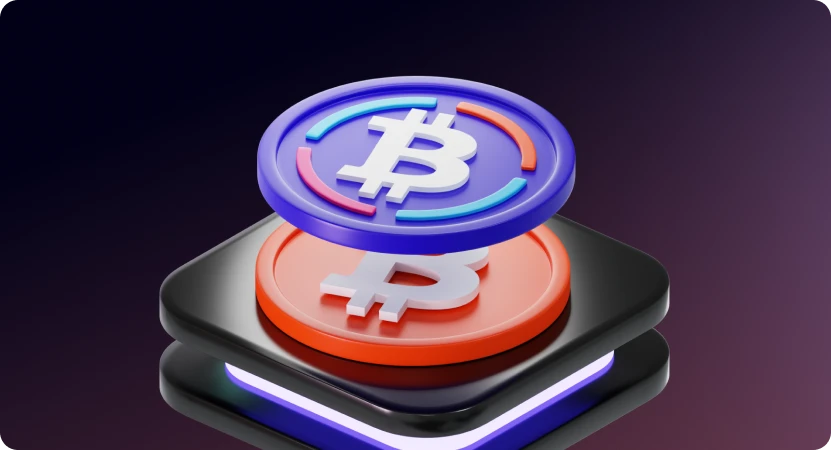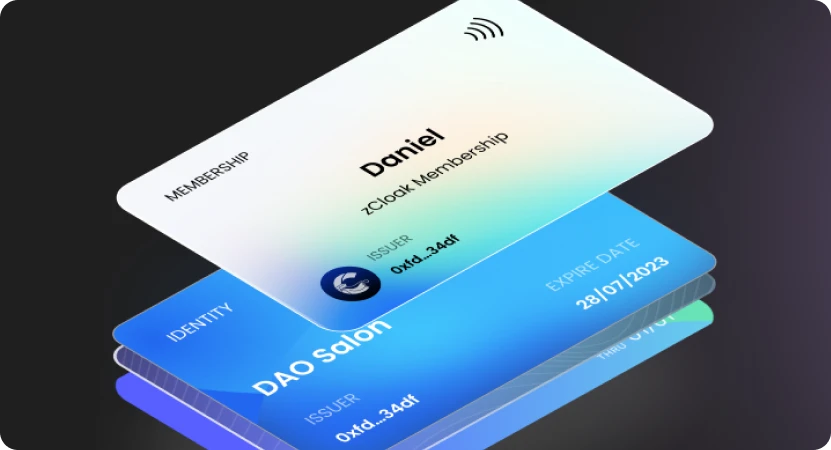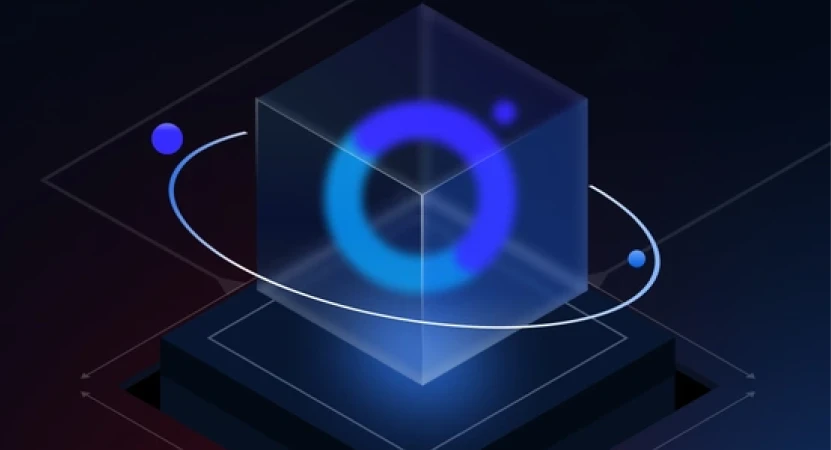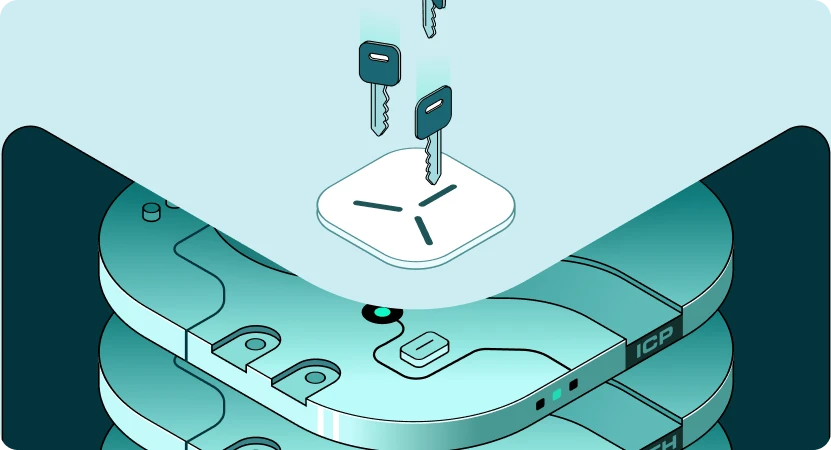Hello, Ethereum
Chain Fusion technology brings unique ICP features to Ethereum. Smart contracts gain access to threshold signing services, oracles, DAO frameworks, privacy tools, pass key authentication, smart contract wallets, and reverse gas fees. Augment Ethereum dapps to build seamless multichain solutions for DeFi, NFT trading, payments, SocialFi and more.

Full support for Ethereum and other EVM chains is now live allowing ICP smart contracts to augment EVM-based smart contracts with additional functionality through ICP's superpowers, transfer tokens on other chains, and call smart contracts on EVM chains.
Extend Ethereum with ICP capabilities
Ethereum is the world's top blockchain for DeFi with TVL in the billions. Integrating with ICP offers cross-chain benefits such as increased asset liquidity, expanded market access, improved scalability and throughput. Plus, access to ICP's unique capabilities:
100% onchain Web3
Decentralize your Ethereum dapp by hosting frontend and backend data on the Internet Computer.
Gasless token swaps
Using ckETH and ckERC-20 tokens, users can swap tokens for a few cents without gas fees.
Web2 integration
Connect smart contracts to the world outside of blockchains. Fetch real-time price data and more from Web2.

Multichain DeFi with ckTokens
In May 2024, average transaction fees for USDC and USDT were $6.66 and $9.93 respectively, making swaps below a certain amount impractical. ICP’s Ethereum integration enables the use of chain-key tokens such as ckETH and ckERC-20 on ICP. This allows users to send and receive ETH value on ICP DEXs for a few cents, with 1-2s finality, and no gas fees.
ckETH and ckERC-20 expose ICRC-1 and 2 ledger interfaces (the token standards of ICP), making it simple for all ICP wallets to offer ckETH support. Total value of ckETH is fully backed 1:1 by ETH, and can always be verified by viewing the onchain dashboard and metrics of the canisters.
EVM on the Internet Computer
An Ethereum Virtual Machine (EVM) is available on ICP built by Bitfinity — a team of developers from the ICP community. Bitfinity offers a turn-key solution for developers to operate their ETH dapps on the Internet Computer using Solidity, which brings ICP's 1-2s finality, and near-0 transaction fees to established Ethereum dapps, providing an incredibly efficient Ethereum scaling solution.


Ethereum integration
EVM RPC
The EVM RPC canister is an ICP smart contract for communicating with Ethereum and other EVM blockchains using an onchain API. It introduces methods that massively simplify the developer experience. The Tritium milestone allows communication with Ethereum, Arbitrum, Optimism and Base. Interoperability can be increased by simply adding other network API keys.
Chain-key signatures
ICP nodes collaborate to produce threshold-ECDSA signatures, enabling canister smart contracts to sign Ethereum transactions. Leveraging the EVM RPC canister, Ethereum transactions can be written to EVM chains. Chain-key signatures also derive Ethereum addresses, enabling ICP smart contracts to read, write and own ETH.
ETH Projects
Join the other developers building incredible use cases with Ethereum on ICP.

Bitfinity
Bitfinity is a fast, next-generation EVM that allows you to deploy smart contracts written in Solidity on ICP.
Learn More

zCloak
zCloak network is developing a chain abstraction-based zero knowledge co-processor on ICP.
Learn More
SIWE
Sign In With Ethereum(SIWE) is a collection of support libraries and template dapps to simplify the process for Ethereum developers to enable sign in with the EIP-4361 standard.
Learn More
Helix
Helix Markets stands out as a groundbreaking hybrid spot orderbook decentralized exchange (DEX) meticulously crafted on ICP.
Learn More
Orally
Orally is a decentralized data oracle provider. The goal of Orally's suite of products is to make digital asset data and real world data accessible onchain.
Learn More
Chainsight
Chainsight provides a data processing layer to develop dapps that go one step ahead. It is an extension layer that leverages historical data, constantly updated data, and cross-chain data to compute the information you need for your dapp.
Learn More
NFID Vaults
NFID Vaults is the only omni-chain smart wallet protocol on the web. People who want the most robust security for their assets use NFID Vaults to protect them from theft, loss, collusion, and fraud.
Learn More

